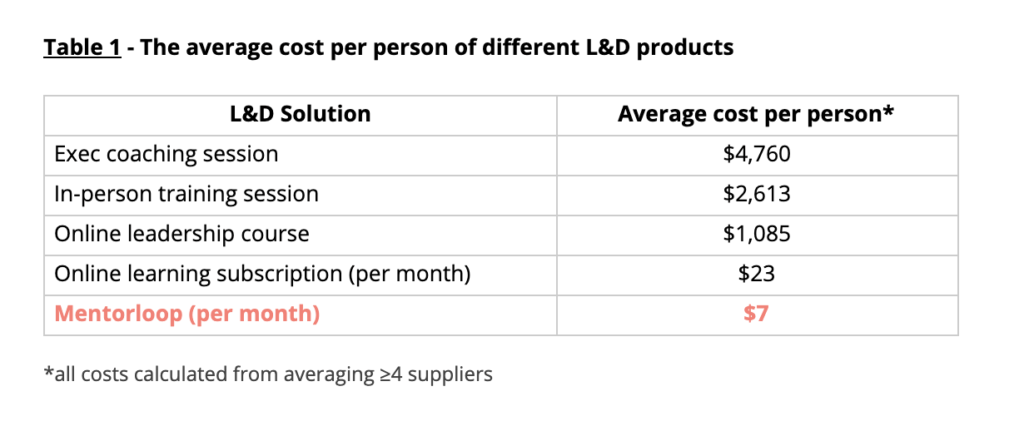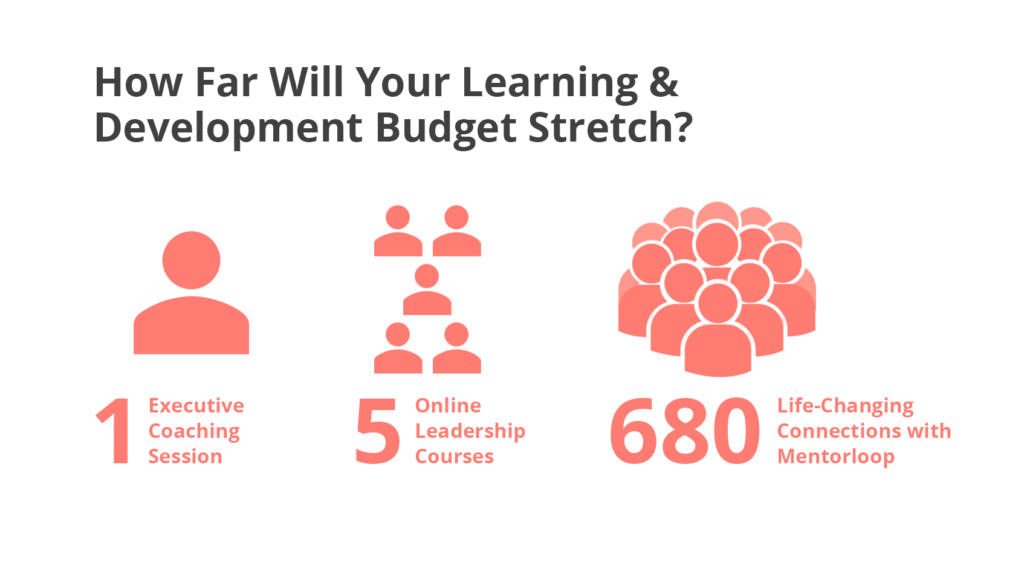Discover how to effectively allocate and maximize your learning and development budget to boost employee skills and drive organizational growth.

In today’s competitive job market, top talent often seek organizations that prioritize professional development. Companies that offer comprehensive training programs and continuous learning opportunities are more likely to stand out to candidates who are eager to grow and advance in their careers. This not only enhances the organization’s reputation but also fosters a culture of learning that can lead to higher employee retention rates.
Additionally, investing in learning and development can yield significant returns on investment (ROI). Organizations that prioritize employee training often see improvements in performance metrics, customer satisfaction, and overall business outcomes. By equipping employees with the latest skills and knowledge, companies can adapt more swiftly to industry changes, innovate more effectively, and ultimately gain a competitive edge in the market. This strategic approach to workforce development ensures that both employees and the organization can thrive in an ever-evolving business landscape.
This is where your learning & development budget comes in. So let’s talk about it!
What is a Learning & Development Budget?
A learning and development budget is a financial plan that outlines the investment an organization dedicates to training, skill advancement, and career development for its employees. This budget is crucial as it reflects an organization’s commitment to enhancing its workforce’s capabilities. When properly utilized, it can lead to a more skilled and engaged team, which in turn can yield greater productivity and innovation.
Key Components of an Effective Learning & Development Budget
To create an effective learning and development budget, you must consider several key components that ensure the funds are allocated wisely and strategically to support diverse learning opportunities, address varying employee needs, and foster professional growth. These components include:
Training Expenses
This includes costs for external learning opportunities such as professional certifications, industry-specific workshops, and conferences. These programs allow employees to acquire new skills, gain fresh perspectives, and bring innovative practices back to your organization.
In-House Training Programs
Internal programs require budgeting for expert-led sessions, employee-led knowledge sharing, or custom training modules. This might involve creating tailored content, compensating trainers, or hosting interactive team-building exercises that align with organizational goals.
Resources and Materials
Effective L&D relies on access to quality materials like e-books, toolkits, online courses, and subscription-based learning platforms. It also includes physical or digital assets for skills development, such as hands-on kits or software licenses for specific job functions.
Technology Costs
Modern learning environments thrive on technology. Consider budgeting for learning management systems (LMS), virtual training platforms, video conferencing tools, and AI-driven systems that personalize learning paths. These tools facilitate scalable, flexible, and engaging learning experiences.
Mentoring and Coaching Programs
Beyond traditional pairings, mentoring programs now include peer mentoring, reverse mentoring, and group mentoring setups. Resources may be needed for structuring programs, training participants, tracking outcomes, and providing tools like mentoring platforms to ensure seamless connections and communication.
How to Allocate Your Learning & Development Budget for Maximum Impact
Allocating resources for learning and development (L&D) is essentially crafting a strategic blueprint for organizational growth. Each element of your budget must align with your organization’s goals, ensuring maximum return on investment.
Start with a Comprehensive Needs Assessment
Building on the key components of an L&D budget, begin by identifying the most pressing skills gaps across your organization. Use tools like employee surveys, performance evaluations, and industry benchmarking to understand where your workforce is falling short. Are there emerging trends or technologies your teams need to master? Is there a particular group—leaders, new hires, or technical specialists—that requires targeted development?
Prioritize Strategic Areas for Growth
With gaps identified, segment your budget to address the most critical areas. For instance:
- Department-Specific Needs: Allocate more to underperforming or rapidly evolving departments that require upskilling.
- Specialized Training: Reserve funds for high-impact roles needing certification or advanced technical skills.
- Broader Initiatives: Consider company-wide programs like mentoring programs, inclusion training, or leadership development, which benefit the entire organization.
Leverage Blended Learning Models
To stretch your budget and maximize impact, embrace blended learning. Combine in-person workshops with digital resources like e-learning platforms, mentoring, or asynchronous courses. This hybrid model caters to different learning styles, fosters accessibility, and allows employees to learn at their own pace. For instance, supplement group mentoring sessions with online modules to reinforce learning.
Evaluate and Adjust Regularly
Effective allocation isn’t static. Continuously monitor the effectiveness of your investments by gathering feedback and analyzing outcomes. Are employees applying their new skills? Are satisfaction rates improving? Use this data to fine-tune your approach and redirect resources as needed.
Tie Resource Allocation to Long-Term Goals
Resource allocation should directly connect to your organization’s overarching strategy. For example, if your focus is innovation, prioritize programs that build creativity and technical expertise. If retention is a key metric, invest in mentoring programs and leadership pathways to foster employee engagement and career growth.
By strategically aligning your L&D resources with both immediate and future needs, you’re not just addressing skills gaps—you’re setting the foundation for sustained success. After all, a well-structured L&D budget is more than an expense; it’s an investment in your people and your organization’s competitive edge.
Strategies for Justifying Your Learning and Development Budget
One of the perennial challenges for learning and development professionals is justifying their budget requests to management. This requires a strategic approach that connects investment in employee growth to measurable business outcomes.
To secure buy-in from leadership, be prepared with concrete data and focus on delivering evidence-based, outcome-driven arguments.
Leverage Data to Demonstrate ROI
Start with hard numbers. Highlight how past L&D initiatives have improved key performance metrics such as retention rates, productivity, and project success. For instance, show how training reduced onboarding time for new hires or how mentoring programs boosted employee engagement scores. Quantifying the financial impact of reduced turnover or increased efficiency can make your case compelling.
Showcase Success Stories
Complement data with qualitative evidence. Share testimonials from employees who have benefited from L&D programs, detailing how specific skills or knowledge gained contributed to their success. For example, a team member might share how leadership training helped them effectively manage a critical project, resulting in significant savings or growth. These stories put a human face on your budget request and resonate with decision-makers.
Tie Requests to Business Objectives
Align your L&D budget with your organization’s strategic goals. If the company is expanding into new markets, advocate for cross-cultural training, language programs, or mentorship initiatives tailored to global operations. If innovation is a priority, propose investments in technical upskilling or creative thinking workshops. By linking L&D investments to broader objectives, you demonstrate that your budget is a strategic enabler, not a discretionary expense.
Highlight Risks of Underinvestment
Explain the potential consequences of not investing in L&D. For example, outline how skills gaps could lead to project delays, lower employee engagement, or missed opportunities in competitive markets. Position L&D not as a cost but as a safeguard against stagnation and talent attrition.
Use Visuals and Forecasts
Present your case with clear visuals, such as charts or graphs, to show trends and projections. For example, display a graph comparing the cost of turnover against the savings achieved through retention-focused training. Include forward-looking forecasts that illustrate how specific investments will drive future growth and success.
Balancing Cost and Quality in Learning Initiatives
Striking the right balance between cost and quality can be done with some thoughtful planning.
Often, organizations might shy away from investing in high-quality training or additional programs and initiatives due to budget constraints. However, it’s wise to remember that relaying impoverished training programs or poorly resourced mentoring initiatives only leads to wasted resources and employee frustration.
Consider attending industry conferences or workshops, where you can learn about high-impact, cost-effective options that provide value for money. You can also seek out partnerships with educational institutions or training providers. Collaboration can sometimes lead to favourable pricing while ensuring quality outcomes.
Don’t forget the power of internal talent! Leverage the strengths of experienced team members to lead training sessions and participate in other initiatives. Mentoring can have a profound impact, often at little cost compared to other projects. With a little creativity and resourcefulness, you can ensure your learning initiatives shine brighter than a penny in a well-lit room!
Using Mentoring Programs to Maximize Your Learning & Development Budget
Mentoring is a powerful and cost-effective way to maximize your learning and development (L&D) budget while addressing the skills and growth needs of your workforce.
Whereas training programs can be great for learning hard skills, a mentor can help guide self-driven learning and teach the skills that are not so easily acquired: soft skills. From negotiation and public speaking to organisation and management chops, your experienced team members may be the best people to impart these to other employees as they already understand the company’s unique culture and challenges.
In order to leverage these people who are already a part of your company, your organisation can implement a mentoring program cost-effectively for a fraction of your L&D budget. For example, the cost of the Mentorloop mentoring platform is a slither of most organisations’ professional development budgets, opening the door for a huge reward.
Why Mentoring?
According to the Chartered Institute of Personnel and Development (CIPD)’s Learning and Development Survey, coaching and/or mentoring is seen as one of the most effective approaches, as are ‘in house development programmes’ which usually include a large coaching element. The survey also found that some examples of situations where coaching/mentoring is a suitable development tool include when it comes to:
- Dealing with the impact of change on an individual’s role
- Supporting an individual’s potential and providing career support
- Helping competent technical experts develop better interpersonal skills
- Developing a more strategic perspective after a promotion to a more senior role
- Handling conflict situations so that they are resolved effectively
However, it’s important to note that coaching/mentoring isn’t suitable for everyone. If an individual lacks self-insight or is resistant to mentoring, for example, it may not be the appropriate intervention.
Therefore, it’s important that organisations assess individuals’ readiness for involvement in a mentoring program before they become active participants. Mentees must not only be ready and willing to be mentored, but they must also be motivated to achieve the desired outcome.
The Tangible Benefits
Mentoring programs unlock potential beyond immediate skill development.
For example, mentees may gain insights into areas for improvement, or even new skills they need to learn through their mentors. They could also learn about a conference they should go to, or get an introduction to a client they might bring on board. This could mean more developed in-house talent, more exposure for the company, and even new business.
Another great example of the benefit of mentoring programs is that mentors are able to direct mentees towards the right in-house training programs for them, therefore increasing participation in initiatives you’ve already allocated budget for. Additionally, gaining different perspectives from their mentees can keep mentors sharp and in touch with new developments in their industry or areas of specialization and beyond.
These outcomes contribute to a stronger, more dynamic workforce, with benefits that ripple across the organization.
Explore more mentoring benefits
A Cost-Effective Investment
Ultimately, the costs of a formal mentoring program are far outweighed by the rewards.
By leveraging the expertise of your existing employees, a mentoring program can deliver significant returns at a fraction of the cost of traditional L&D initiatives.
Platforms like Mentorloop enable organizations to implement scalable and efficient mentoring programs without straining their budgets.
And with Mentorloop’s competitive pricing, this means that any HR or People & Culture team can roll out mentoring to more people, for a much lower price – making a program more scalable and accessible for people at different levels of the organisation.
For comparison, a Mentoring Program with Mentorloop is 680 times cheaper than executive coaching and 373 times cheaper than an in-person training session.

With the average learning and development allowance for an individual employee sitting around $1200, why invest in a one-off experience when you could provide them with multiple life-changing connections for the cost of a coffee?

Maximise your learning budget by leveraging the talent that lies within your organisation. Encourage people to share knowledge and experience with one another for a powerful, engaged community. Build a culture of mentoring at your organisation, with Mentorloop.




